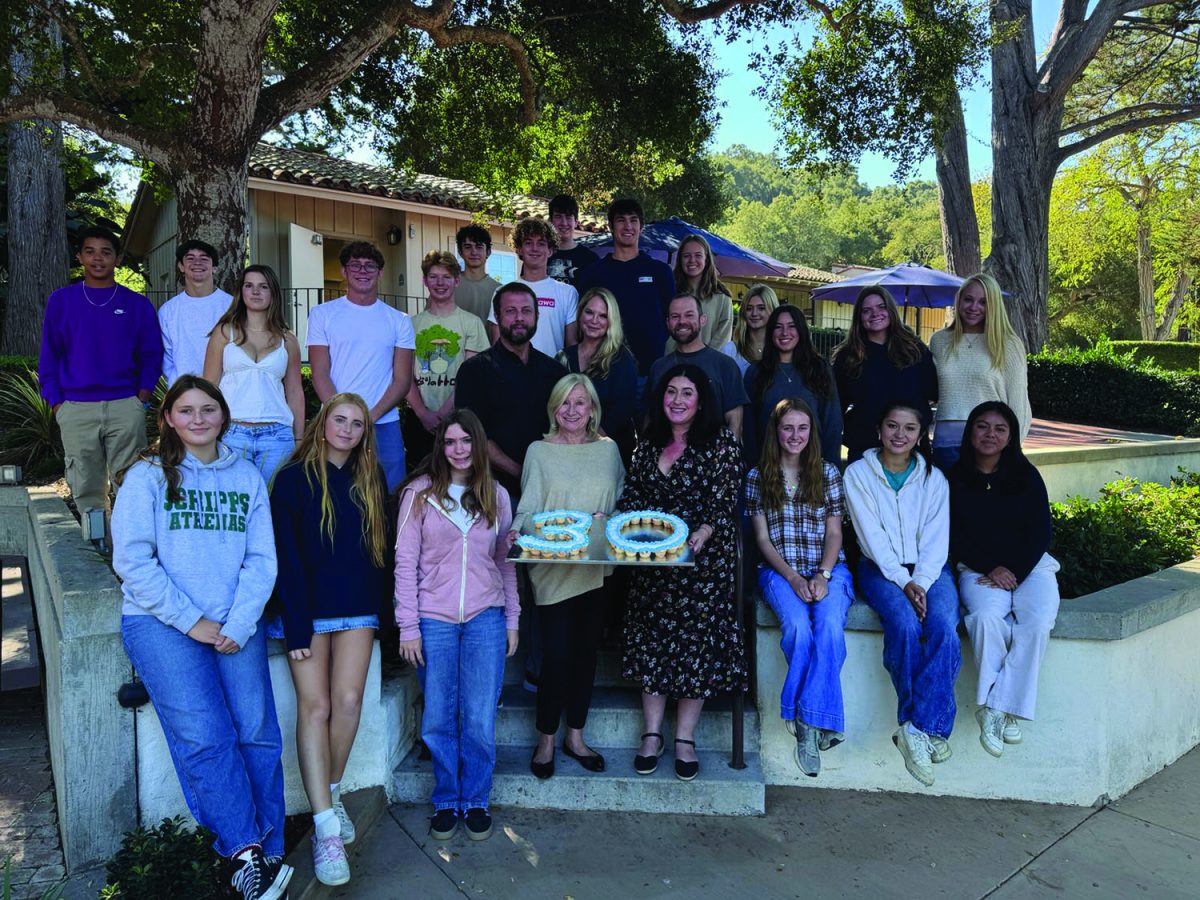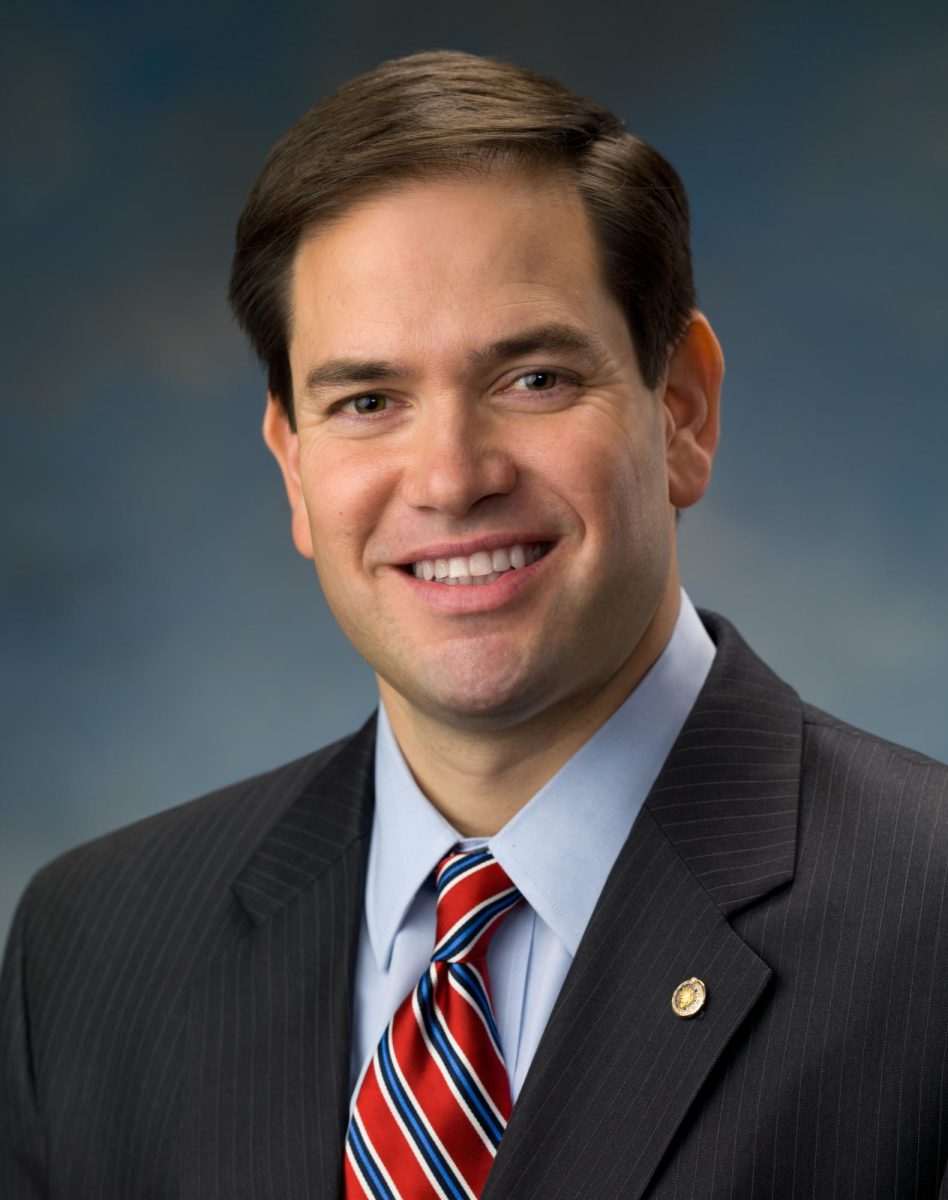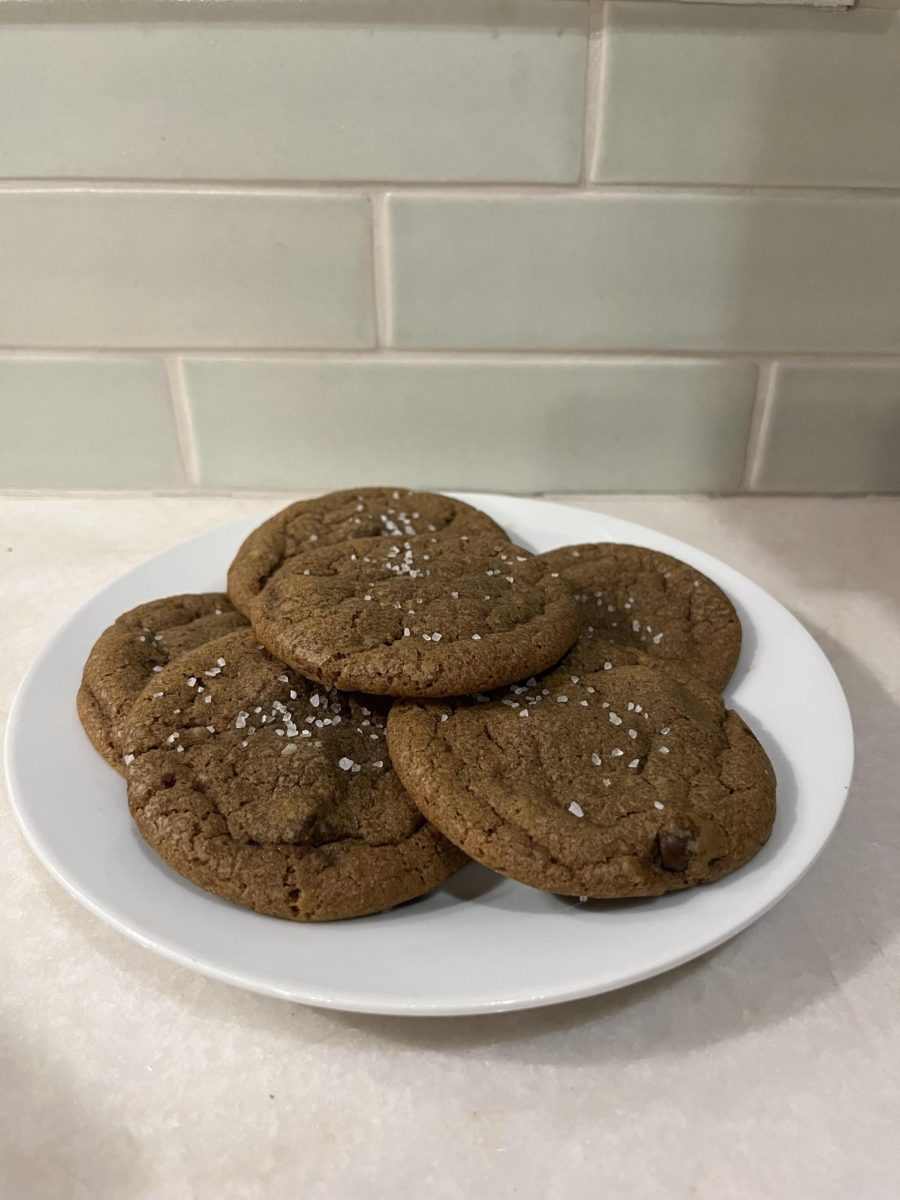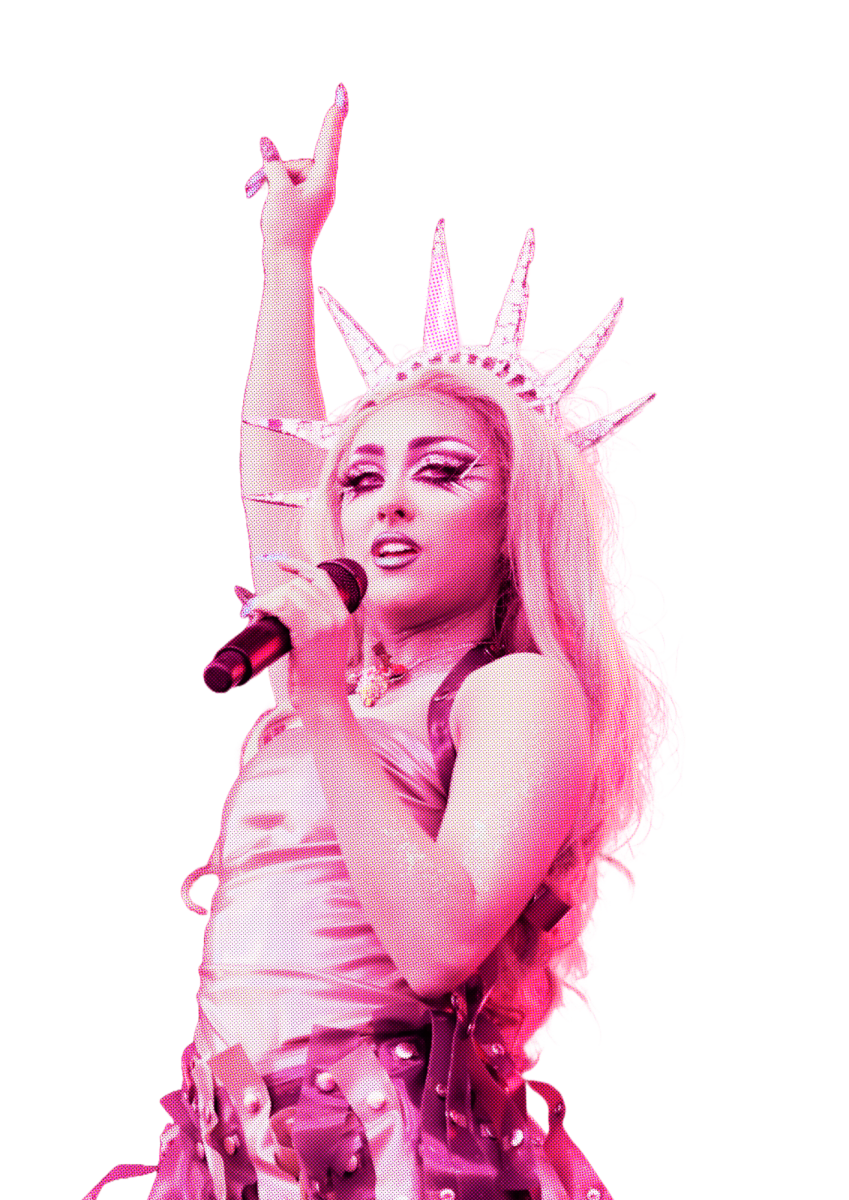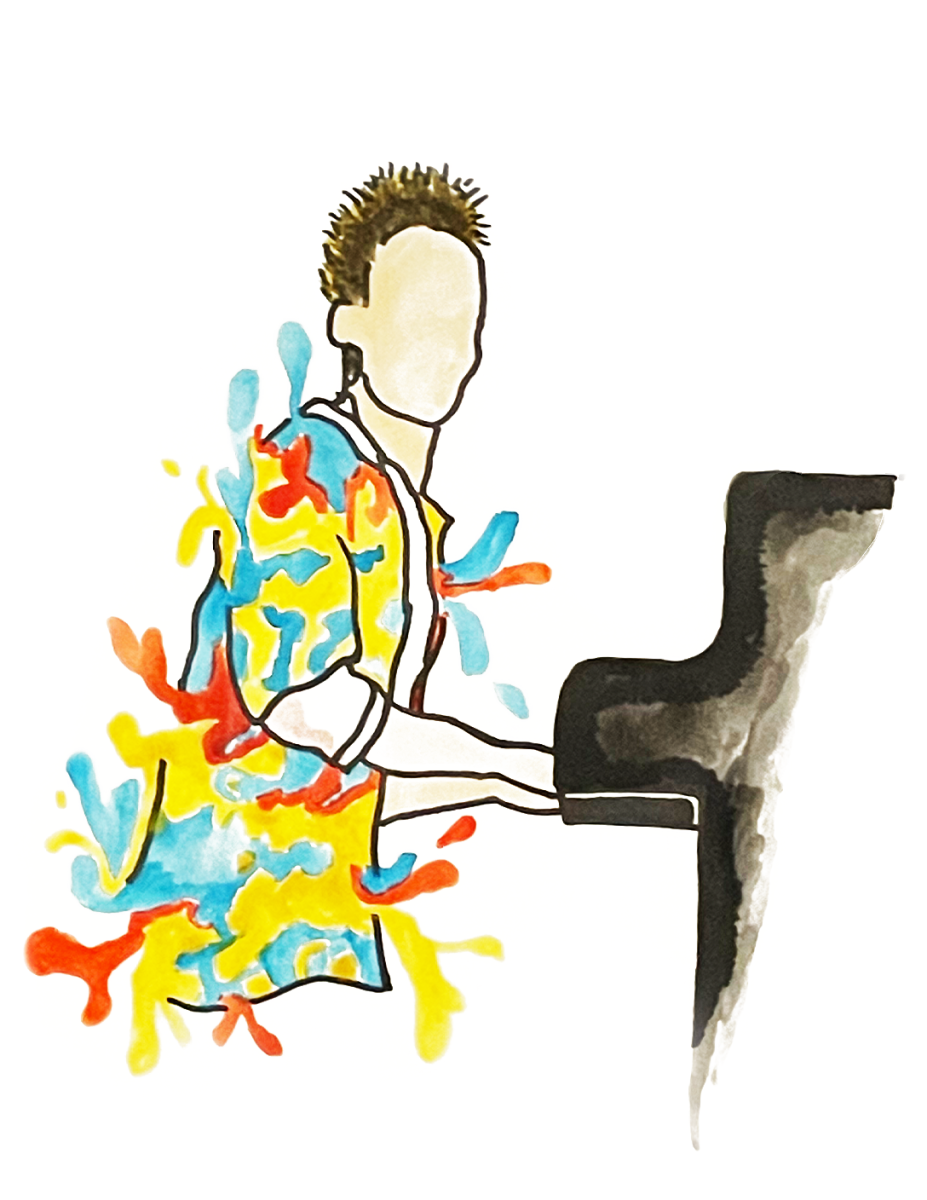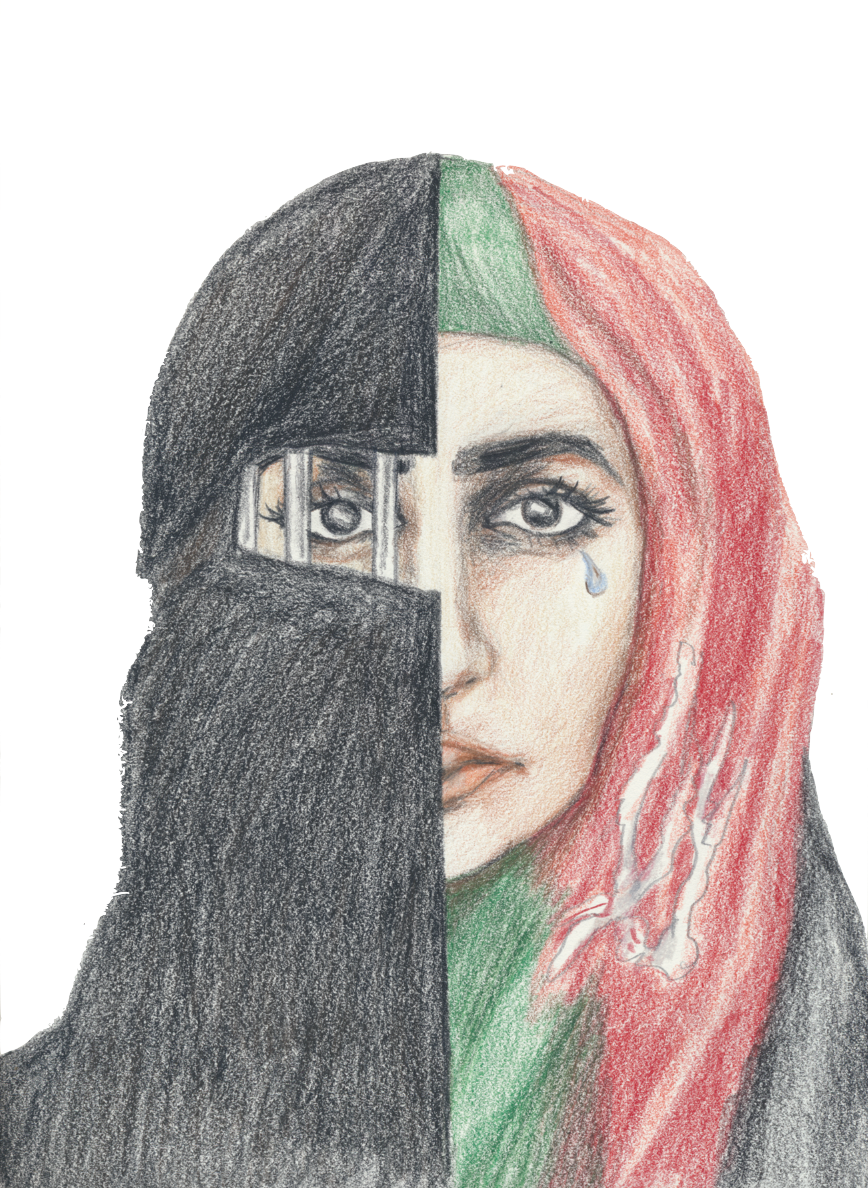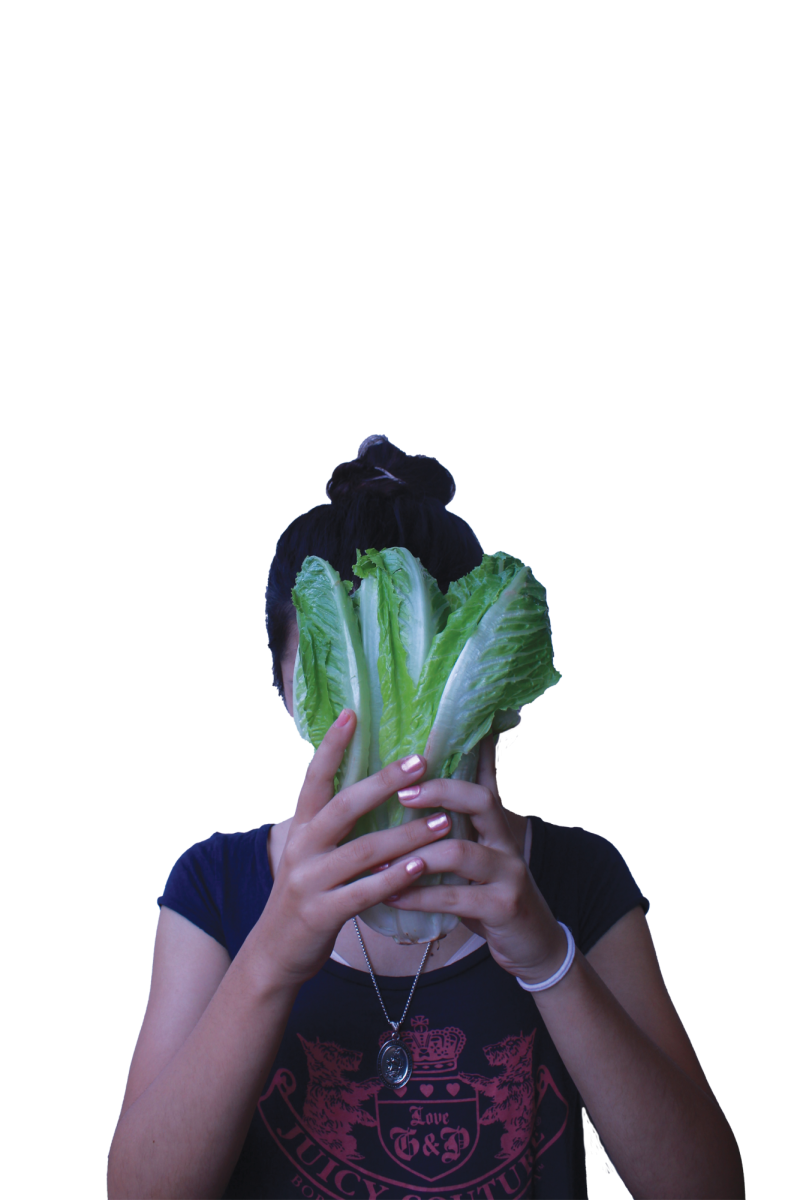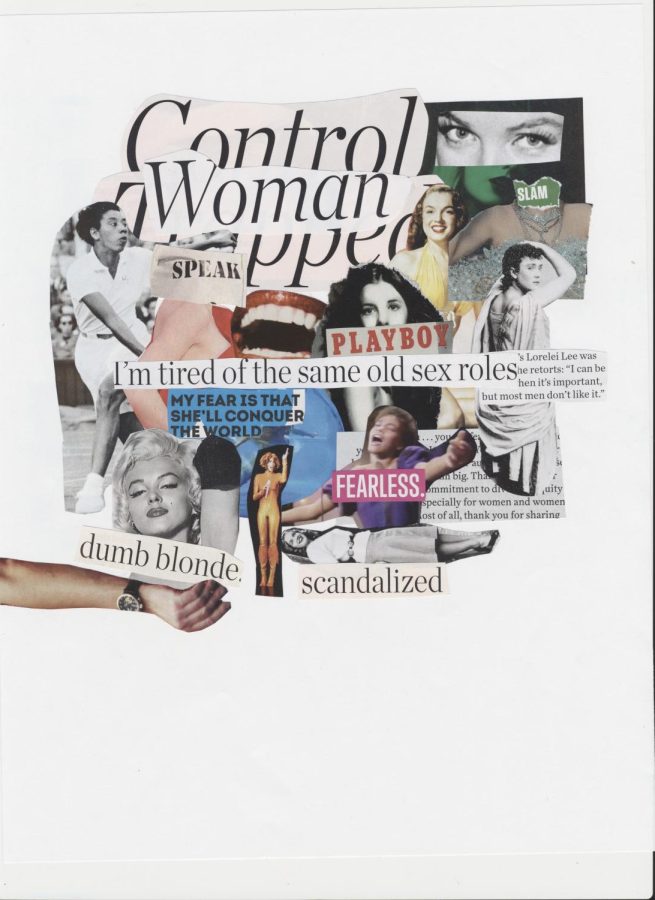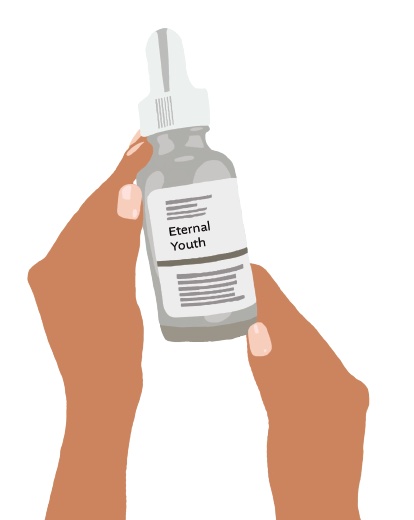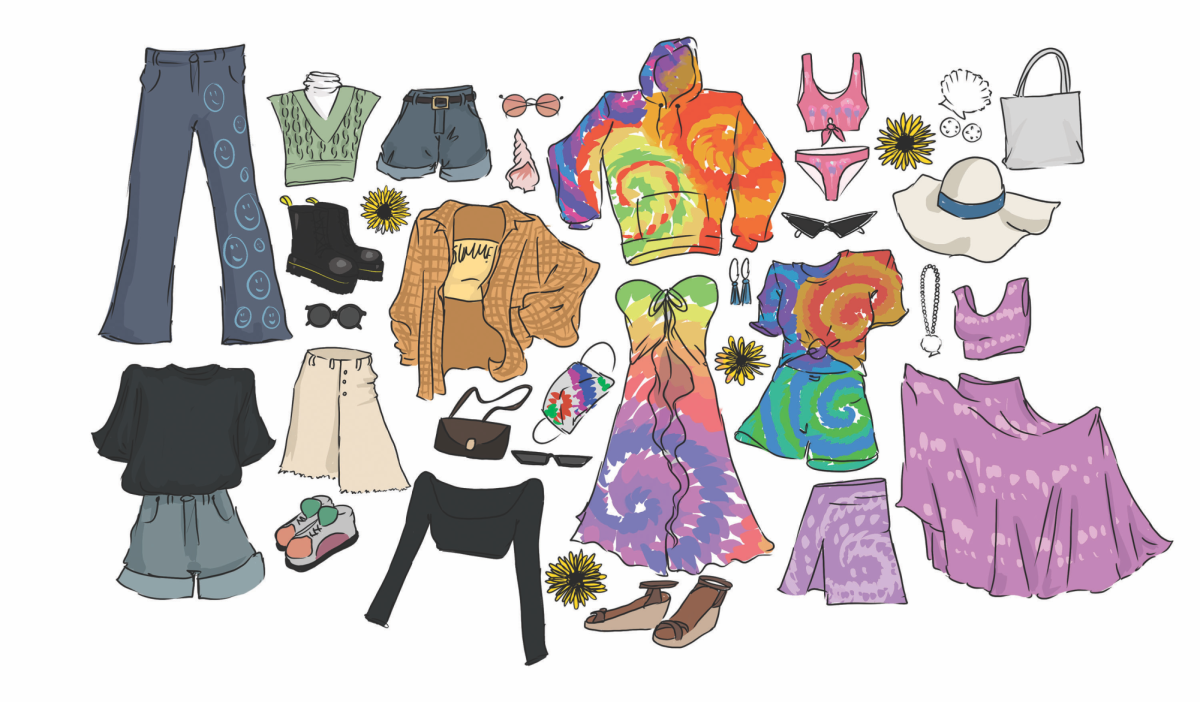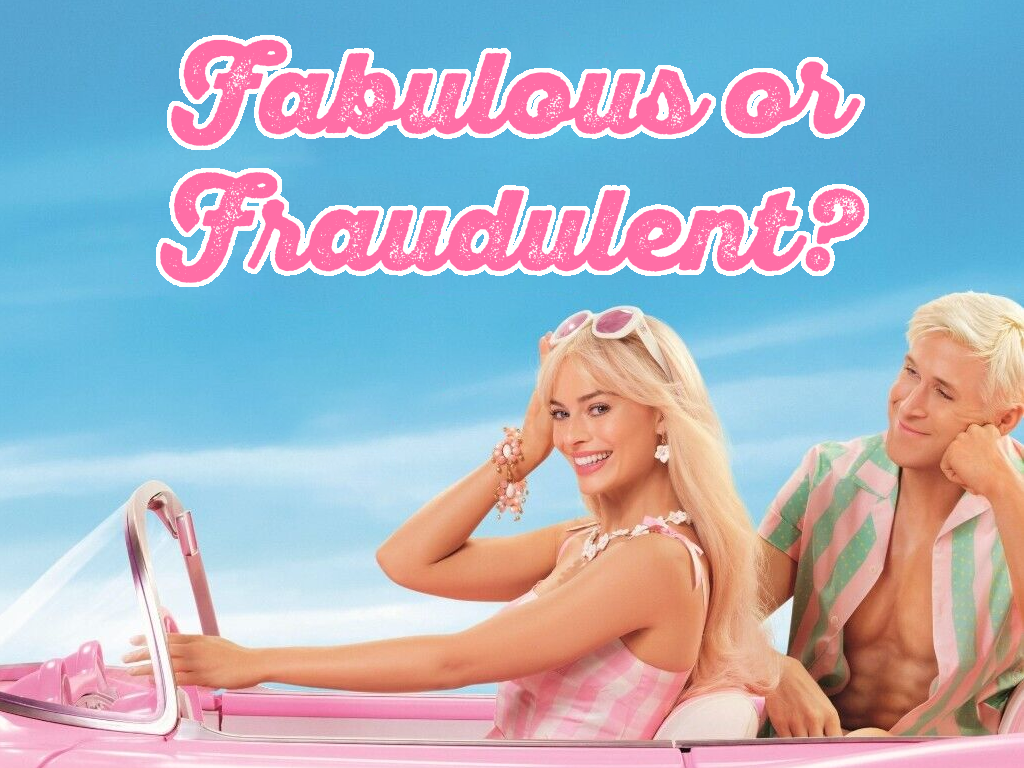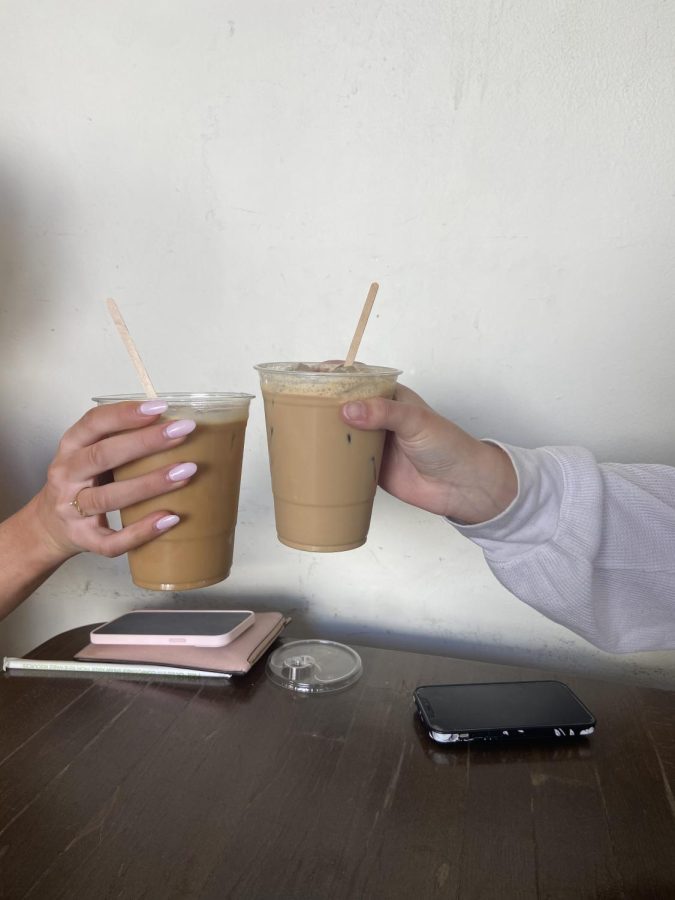First, it was makeup tutorials and YouTube videos that dominated trends throughout the 2010-20s.
Mastering the art of contouring and attaining the perfect brow shape was what initially had a grasp on Generation Alpha.
Now, skin care manufacturers are pushing the limits of beauty and the obsession with de-aging by manipulating the current skincare craze on social media.
“I would say I started consistently using skincare when I was 12,” junior Eleanor Crafton said.
Over the past few years, skincare has become all the rage on social media platforms. Platforms such as TikTok and Instagram offer a plethora of information on the skin care brand practices that are the most trendy at the moment.
Influencers play a significant role in the popularity surrounding skin care, making posts about tips, treatments, and product reviews for their large followings to see. These influencers emphasize the importance of taking care of one’s skin.
“Every great skin care routine is going to have a lot of steps, including cleansing, treating, and protecting,” Dr. Sah, one of TikTok’s largest skin care influencers and dermatologists, said.
While taking care of one’s skin with anti-aging creams, glow serums, and various SPF sunscreens has been a normal occurrence for years, the surge of pre-teens hunting for the current must-have TikTok skin care products in Sephora aisles is fairly recent.
Through the collaboration of social media influencers, the multi-billion dollar beauty industry, and toxic slogans promising ageless perfection and immediate results, beauty standards have evolved now more than ever.
The once popular beauty trend of making the pre-pubescent face more mature with makeup has now switched to preserving the pre-pubescent face with skin care.
The most popular retail chain selling skin care products currently is Sephora, which is where most adolescents shop for skincare products.
The easily influenced minds of pre-teens, especially the largely female audience, are the main targets of this exploitation. The encouragement of skin care usage to pre-teens is largely due to a fast consumerist culture.
“It wasn’t until I was 13 or 14 until I started using make-up every day. I had always played around with stuff like lip gloss whenever I wanted to or for fancy dinners and things, but it wasn’t ever a priority,” Eleanor said.
Influencing on social media platforms refers to the promotion of goods and services to a specific audience, such as online shopping for clothes or subscription services to streaming platforms.
Since the information is spread so easily on social media, fashion and other beauty trends become unpopular as fast as they arrive. This creates a sense of competition and urgency, pressuring viewers to invest in these products repeatedly.
The endless scrolling and pressure to buy into trends, such as skin care, has a profound effect on the
younger age groups, such as Generation Alpha (b. 2011 and 2024).
It is now deemed normal to see members of Gen Alpha casually hovering in front of the expensive Drunk Elephant and Rare Beauty aisles in stores like Sephora, debating on whether to spend their allowance on the Watermelon Glow Recipe Dew Drops or Drunk Elephant Bronzing Drops.
Their behavior is being immensely criticized on social media by older generations, who are baffled by their lack of manners.
“I feel like a lot of these kids, because they are so young, they like to have fun, but they tend to mess with the displays and the testers,” junior Sofia Ramirez said. “Which I think the employees other shoppers don’t appreciate their behaviors.”
On TikTok, these Sephora 10-year-olds are criticized not only by members of Generation Z (b. 1997 and 2010) and their older counterparts, but also by makeup influencers for being inconsiderate to the other customers and employees, and making a mess of the tester products.
“I have so many stories of Sephora 12-year-olds making a mess of the store… it’s crazy,” Olivia Vaphiades, a TikTok influencer who posts about her experiences as a Sephora employee, said.
Many find it appalling that this behavior is being condoned and funded by parents, because of the lack of knowledge that these parents have on the dangers of skincare and the negative effects of beauty trends. Being affected by pressurizing beauty trends at such a young age exposes children to harmful chemical ingredients found in the products that will give the “perfect glossy skin,” or will supposedly put a halt to aging.
Drunk Elephant, one of the most popular skincare brands on social media that has taken hold of Generation Alpha, is known for its serums and bronzers that are clinically proven to provide 24-hour moisture to chronically dry skin.
Its vibrant displays and design appeal to the eyes of the young viewers consuming its product. But it is not meant to be used by 10-year-olds.
The founder of Drunk Elephant and stay-at-home mom Tiffany Masterson said to Glamour that her products were designed for a specific age group.
“We do not recommend children under 13 use acids or retinol (vitamin C is an acid).”
Retinol is a form of vitamin A that many lines of skin care use to treat acne. It contains anti-aging effects that are typically marketed to people in their twenties or older.
Designed specifically for older skin, Retinol contains strong ingredients that can be damaging to young complexions. Retinol is not the only damaging product to youthful skin.
Tretinoin, a prescription-only synthetic retinoid meant to cure acne on older skin, and vitamin C products that are meant to reduce wrinkles are found in many of the skincare products that these children have been using.
Under the influence of content creator’s social media pages and having a lack of purchasing age restrictions on skin care products, parents are unknowingly contributing to the harm to their children’s faces.
While these ingredients in the advertised products are damaging enough, the real problem lies in the negative influences of the trends themselves.
Gen Alpha is becoming victims of beauty standards that are convincing them to be scared of aging.
The influx of social media influencers started trends such as “#grwm,” standing for “get ready with me,” where influencers talk through an event in their life and show their viewers the products they are using as they get ready for the day.
The trend, which first started as a fun way to share different skin care or makeup products, has become one of the most dominating trends on social media.
These trends influence the younger generation in a negative way, creating an obsession with de-aging.
Many young influencers have expressed their anxiety about aging or growing wrinkles and end up investing in skin care products.
Social media is known for its detrimental effect on teenagers — however, now it’s stemming back to pre-adolescents worrying about acne and skin care products.
This ideology comes directly from social media since it portrays beauty standards and proportions that are unrealistic and physically impossible.
These toxic standards displayed openly on social media have a large negative influence on girls who are trying to achieve the unachievable.
“The other day, I saw an eight-year-old unregulated on social media, which I think is very damaging, thinking about them being brought up on unrealistic and toxic beauty standards that you couldn’t possibly keep up with,” Sofia said.
Additionally, with social media influencers mostly being over the age of 20, children now feel the urge to grow up faster to fit in with the “trend.”
These pressures to mature faster through physical characteristics are restricting them from enjoying their childhoods due to beauty insecurities.
Although pre-adolescents seem to be taking de-aging skin care to an extreme, there are positives to their skincare craze.
Exposure to skincare practices at a young age can help shape positive skincare habits, which encourage young users to take care of their skin from an early age.
It’s important to recognize that aging should not be viewed negatively.
Generations of women have been programmed to think that wrinkles are ugly and unattractive.
Especially now, being surrounded by ‘anti-aging’ products and campaigns, we are forced to want the desired look of having our skin look eternally youthful.
The so-called Sephora 10-year-olds are not to blame for the continued cycle of unhealthy beauty expectations; they are just the victims of toxic consumerism.
Both parents and social media influencers need to focus their attention on the well-being of the younger generation instead of focusing on how glowy their skin will look in 20 years.









